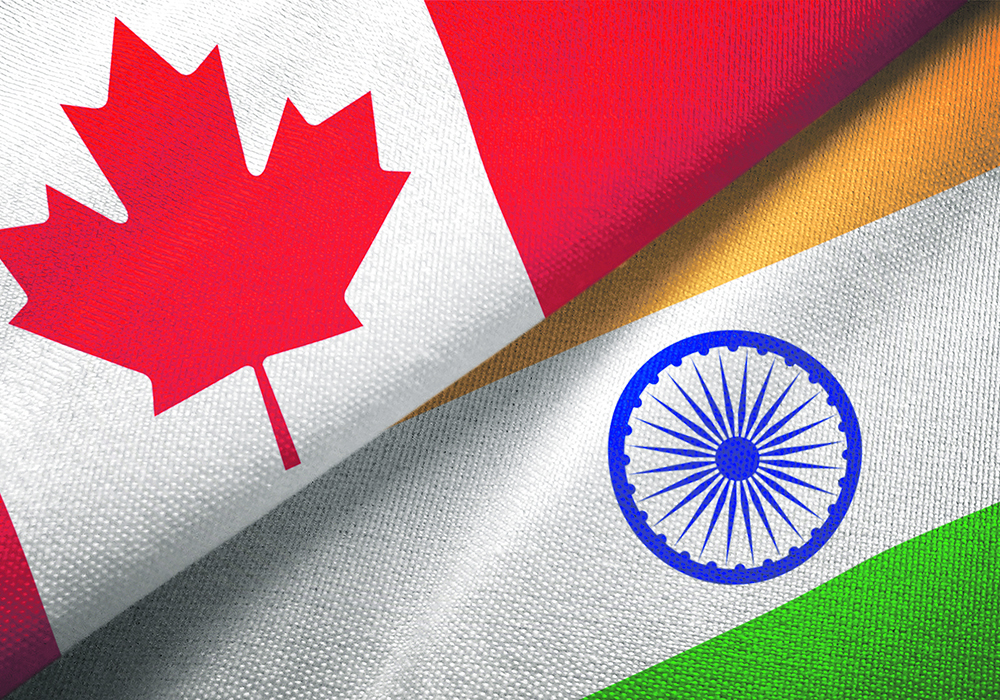With relations between Canada and India at a new low, it’s an uneasy time for lentil exporters.
So far, allegations by Canada have led to the expulsion of diplomats by both countries and the suspension of visa services for Canadians wanting to travel to India. Whether the political tension spills over into the trade arena is anyone’s guess, but India is a huge customer for red and green Canadian lentils.
So far, the unease has led to a softening of demand with no large impact on prices. Red lentils are still priced at 38 to 39 cents a pound with large green lentils at more than 60 cents. Lentils are one of this year’s most profitable crops.
Read Also

High prices see cow-calf producers rushing to incorporate
Farm accountants are reporting a steady stream of cow-calf producers rushing to get their operations incorporated ahead of selling their calves this fall.
However, one significant Canadian lentil exporter is reported to be restricting purchases to only four Super-B loads per farm. I talked to a producer upset by the restriction. It reminded him of the restricted delivery opportunities regulated by the Canadian Wheat Board.
Hopefully, trade will continue unfettered and this restriction will be removed. Unfortunately, there are no guarantees.
Pre-pandemic, China halted canola imports from a couple major Canadian exporters and that ban lasted years. While China always pretended the ban was due to other reasons, it was widely seen as retaliation for the house arrest of a top Chinese executive, the same reason the two Michaels were detained in China for years.
Trade patterns adjusted during the ban. Canola prices were no doubt affected, but certainly not decimated.
Still, lentil exporters are understandably nervous. It takes weeks for lentils delivered to a facility in Saskatchewan to make their way to India. A lot could happen in that time.
India always walks a fine line between keeping pulse crops affordable for its people while keeping returns acceptable for its multitude of subsistence farmers. Hopefully, India won’t have an appetite for using trade to score political points, but anything is possible.
India and China have the two highest populations on Earth, with India recently overtaking China. With its aging population, growth rates are reversing in China. The Indian population continues to grow at a rapid pace and the country has a much younger demographic. Both are huge markets for Canadian grains, oilseeds and pulse crops.
China is ruthless and thin-skinned while continually wanting to expand its territory and influence. We’re now discovering that India may be more unscrupulous than previously thought. Both are friendly with Russia, despite that country’s unprovoked and bloody invasion of Ukraine.
When it comes to trade, it is sometimes hard to tell the good guys from the bad guys. Just look at Italy’s past actions against Canadian durum and the European regulations that largely exclude Canadian beef imports.
Canada doesn’t have a pristine record either when you look at how our dairy sector uses every trick to exclude what little import of dairy products trade agreements allow. All the main political parties cater to the powerful dairy lobby, even if it means bending the rules of established trade agreements.
Trade has always been complicated by political factors and probably always will be. In the years ahead, some observers believe an industry’s or even a farm’s carbon footprint and/or sustainability index may determine product exportability.
For now, politics remains an important factor to watch. More than ever, we need to pay attention to events around the globe. Sometimes, these events are seemingly unconnected to agriculture until trade becomes a political weapon.
Kevin Hursh is an agricultural journalist, consultant and farmer. He can be reached by e-mail at kevin@hursh.ca.
















